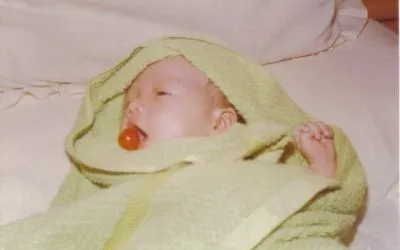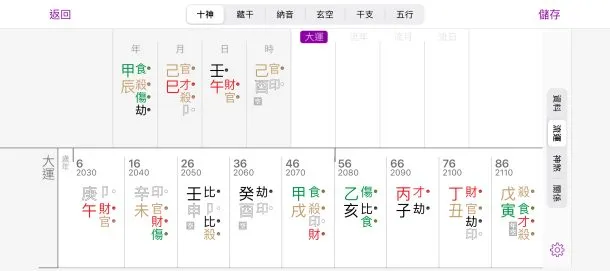Table of contents
- Are We Born Good Or Evil?
- Does Astrology Encompass Morality?
- Are We Really As “Good” As We Think We Are?
- My Experience With ‘Good’ People (Don’t Make Me Puke)
- Following Virtues Blindly Do Not Make Them Virtues
- I Have Something Against Virtue Signalling
- How Do We Know We’re On The Right Track?
- What Does All This Gibberish Have To Do With Astrology?
Oh my… OH MY! It has been a while. I can’t tell you how much I miss writing. I think I’m going to inject some flair into this post for the sake of making it more palatable for myself. Depending on whether you’re human or subhuman, prepare to either be mildly entertained or very offended.
Before I begin, may I just say I am proud that I shoved both Macquarie and Oxford’s “Word of the Year 2024” into the title? Not because it’s relevant to the topic about to discuss (or maybe it is) – but because I can because I’m paying money for this website. Sue me.
I’m sure everyone knows I’ve been busy with work and fatherhood, and boy, being a parent isn’t easy. I have a newfound respect for everyone who is a parent – although I have to make it clear that this only extends to good parents who know why they want to be parents, aspire to be good ones, and make it a point to be good ones.
There’s this topic I’ve been dying to write about for some time now, and I figured I’d better do it while I’m on leave and have some time to myself to ruminate over things. Again, what I’m going to write about is nothing new—just that this will be a more nuanced and focused post, and I’ll also be bringing in some examples.
The topic is about “virtues”. For some unknown reason, I think there’s an expectation for practitioners to be kind, compassionate, and whatnot. Or at least that’s what most other practitioners try to portray themselves as to the point that society expects it of us. It’s a weird expectation to have to live up to.
I want to write about “virtues” and “virtue signalling” because I feel like I’ve been viscerally assaulted by virtue signallers for quite some time now. There are many examples revolving around sensitive topics that I could bring up, but I’ll leave that to the well-read reader like yourself to decide what they are and where virtue signalling shows up. I’ll try to keep things from the lens of astrology.
Speaking about these topics is not because I want to preach, virtue signal, or whatever. Anyone who knows me by now would know that virtue signalling is the last thing I wish to do, especially when I am so open about my loathing of Category 4 chart-holders who make us question why they need to exist. I’m approaching this topic of “virtue” from a more intellectual standpoint which, hopefully, encourages some discussion and rumination. It’s what I’ve always been trying to do.
Take control of your own life, believe in your own power and autonomy, and think for yourself. I’ll write about power and autonomy separately because I think it deserves its own blog post. But before I get there, I wish to reiterate that I feel a lot of the problems we face as a society are because we feel we need to look for answers outside of ourselves, to the point that we forget to put in our own effort. We turn to religion, the supernatural, or things that don’t make sense the moment something goes wrong – we don’t even bother thinking why things went wrong and what we can do to make things better. This is why there are ‘practitioners’ out there selling you BaZi-changing rituals for 5-figures exist out there. It’s the reason why this piece of garbage exists:
I often hesitate to discuss topics revolving around morality because I will never feel like I’m in a position to talk about such topics, although morality somewhat sings the same tune as astrology. After all, like morality, astrology ideally tells us the best direction to move. I don’t think I’m a bad person, but neither do I think I’m a good person. I’m just – a person. What’s good or bad to me doesn’t matter if other people are experiencing something different when interacting with me, which is out of my control, especially when I make it a point to be myself. This negates the need to debate whether I am good or bad, and I focus more on the cause-and-effect, although, yes, it’s still guided by some moral code.
You can decide for me whether I’m a good or bad person – I’m indifferent about how people feel towards me, and perhaps you should too. All I know is that I let the universe decide whether I’m on the right track and deserving of its blessings, and I hope it sends me a signal when I’m not. Perhaps that’s what they mean by “being one with the Dao”.
Are We Born Good Or Evil?
Are we born good or evil? Don’t you find such questions interesting enough to engross yourself in them occasionally? Oh, sorry, you’re a TikTok doom-scroller who isn’t curious about the world but at the same time asks me whether you need to work hard to be rich.
I don’t know about you, but I occasionally have such conversations with my wife, and I look forward to the same conversations with my children when they grow up.
The great Aristotle argued that morality is learned and we’re born amoral, whereas Sigmund Freud considers us to be born with a blank slate. Thomas Hobbes described humans as vile and like brutes that need rules to suppress our natural instincts for a better society. In contrast, Jean-Jacques Rousseau argued that men (and women) are more pure than we think, corrupted only by the greed and inequality caused by the class system.
Then you have our famed Chinese saying of 「人之初 性本善」, meaning man is born moral and kind, leaning towards what Rousseau believed in.
I embrace Yin and Yang, so I don’t exactly take a side. I believe each great philosopher of their time believed in whatever they believed due to the era and circumstances they found themselves living in. I don’t think anyone is more right or wrong than the other. The astrologer in me may take on a more fatalistic view in that how we are determined the moment we are born, but whether to slap the label of “good” or “evil” on someone requires another debate.
I’ve written about how I define “evil” before, so I won’t try to define it again. We all want the same things, but our paths towards getting there differ—some are wise and noble, and some are not.
I’d like to believe that everyone who believes in astrology somewhat believes in a higher power and that to get a good life, one must be a good, virtuous person. We were raised to think that way, and whatever religion we believe in also preaches this.
Then comes the big question, “How do we know we’re good, virtuous people?”
Does Astrology Encompass Morality?
I’ve not come across any book, or at least not yet, on astrology that proposes that the laws of astrology are the moral codes we need to adhere to. I think the more you study astrology, the more you appreciate the amoral (not immoral) quality of it. The virtues and essences that arguably have intrinsic existence exist in themselves and do not have a moral or immoral side per se.
A planet, element, House, or zodiac sign each has specific meanings and symbolisms, but I don’t feel any of them are intrinsically moral or immoral.
What makes more sense to me is that our execution of these meanings gives it a moral or immoral lens, and how we execute and act on these meanings is also subject to moral relativism. On the topic of moral relativism: Please go read up on that yourself. Or perhaps ask yourself if you should stone your gay friend to death as a means to be moral and favoured by whatever it is that you choose to worship.
I have to think about such things because, as much as possible, I cannot have my own biases get in the way when a client comes to me for a reading – because that would be unfair to them. I have people in their early 20s who went for a sex change, and I am no one to pass judgement on whether it is the right or wrong thing to do. People in feudal China don’t even cut their hair out of filial piety, and we’re in an era where sex change is possible now. Times have changed – who am I to judge? I approach such topics as a detached observer coming from fascination.
I also have clients who used to be, and some still are, sex workers. Is it written in their charts that they would embark on this less-taken path? It is. But again, there’s no need to pass judgement and there is nothing moral or immoral about it from the lens of an astrologer. Their decisions are simply an expression of their charts. No one was harmed, and you could even say some suffering was alleviated.
If any axiom in astrology becomes moral dogma, I think we’d all be paralysed because there are just too many things to obey. Thankfully, I don’t think that’s what astrology is about. No zodiac sign or element is more moral than the other.
Are We Really As “Good” As We Think We Are?
I think it’s innate in anyone to feel that “I’m a good person” and that we all strive to attain what we define as “good”. However, if reality can only manifest when Yin and Yang interact, we also know that what is “good” in our view may be “bad” for others. For example, my constantly berating Category 4 chart-holders might feel like a breath of fresh air to some and a much-needed calling out for imbeciles who don’t know what accountability is; it also portrays me as unempathetic and arrogant. That, I am clear – and that – is the Yin and Yang of things. I can’t please all sides – that’s just how it is.
I kid you not, but I actually shudder when someone thinks I’m a good person because, at the back of my mind, I have a list of people I hope will suffer horrible, lonely deaths. It doesn’t preoccupy me; I just entertain such intrusive thoughts once in a while, and I’m OK with it. So please, don’t see me as a good person. What I will gladly admit to, though, is that I am trying my best to ‘have fun’ dancing between being a good person and a bad person and figuring things out along the way.
I’ve been thinking a lot about this question because one of the biggest ironies of my life is that the worst people I’ve met, for some odd reason, like to think that they are “good” and are the embodiment of virtues. I admire the attempt and intent, although I can’t help but baulk at the execution, lack of spirit, and utter delusion.
My first response to that notion is, if you’re so “good” and “virtuous”, why are you miserable, and why does your life suck? You think so highly of yourself, but yet everyone would rather drink bleach than entertain the idea of spending the rest of their mortal lives cohabitating with you. I always need to clarify this in case some idiot out there wants to misconstrue what I said, but a lot of people are born into suffering – like those born in wartorn countries – but it doesn’t mean they aren’t good and virtuous and that they deserve whatever they’re going through.
I sometimes wonder why people don’t bother asking themselves whether they are a bad person instead. Perhaps they can start examining that by questioning their intentions right from the start. I was brought up as a Buddhist, and, of course, I witnessed what I feel went wrong with the religion along the way – not that it’s the fault of the religion itself, but more of the people who embrace it without trying to understand it further. It is a tad reductive to feel that you’re a better human being than others simply because you choose to eat vegetables for the rest of your life.
We can use a simple example that involves our favourite word, “karma”. The most shallow, uneducated interpretation of this popularised by Cat. 4 dimwits is that as long as they do a ‘good deed’, no matter how fake or pretentious it is, it will lead to a good outcome or good life.
It baffles me that no one has bothered to think that “karma” is also about intention. (Nibbedhika Sutta: Penetrative)
The irony is this. We pursue what is “good” because, yes, we were taught that it is important. Even if we weren’t taught in school or by our parents, society would teach us that there are some rules to abide by. But along the way, if one’s not careful, it can become about someone’s vanity instead, and hardly anyone has bothered to go deeper. 「了凡四训」 was a book I encouraged everyone to read right from the start, and it’s even completely secular. Doing good – isn’t as simple as it looks.
A sex worker works to feed his/her children. You have a decent job, but you punch your spouse in front of your children. So tell me, who is the sinner here?
My Experience With ‘Good’ People (Don’t Make Me Puke)
You’ve heard me say this a thousand times – but the plethora of individuals I’ve met throughout my career gives me endless stories to talk about at the dinner table.
I’ve met those who claim they are religious, spiritual, and even gifted with special powers, only to realise they are self-victimising, manipulative individuals who twist the narrative to make them look like good people, hiding behind religious narratives and dogma, invoking religious quotes as though, wow, they are truly good people that we should seek to emulate. The reality is that they are unemployed, jobless, utterly useless, and yet have the audacity to act as though they are too pure for the world and how it functions.
More commonly, I’ve met deplorable parents who claim they want a “complete family”, but their shallow definition of a “complete family” is simply to hold onto the legal definition of a marriage – but exhibiting physical violence in front of their children is OK as long as the family is ‘complete’. Then they come and ask me whether they are the ones truly at fault. Pathetic.
Some think that love means staying in a toxic relationship, even if it means your husband cheated on you and you found out because you mysteriously contracted an STD.
To an outsider, I think anyone with common sense can conclude that bad decisions were made – maybe not to the people in these stories, but to most of us, it is. I often ask myself what compels these people to make seemingly stupid decisions when every single day of their lives is pressure, conflict, and suffering.
In my old blog post discussing what “evil” means in the eyes of astrology, I argued that evil comes about when the pursuit of virtues becomes imbalanced and twisted. I’ve even added the Western astrology angle in my recent blog posts. For some, the need for love and intimacy becomes a sexual assault or voyeurism for low-lives who can’t control themselves, and the need to be resourceful and materially successful becomes Machiavellian and scheming, as we can see from news on scams and Ponzi schemes.
I do not doubt that the people I posted about are trying to “be the best they can be” and pursue the virtues that drive human behaviour, but something went wrong along the way. There is a very fine line between a virtue and a vice, which is why Aristotle once said, “Virtue is the golden mean between two vices, the one of excess and the other of deficiency.”
Has it not occurred to anyone that if you are truly doing the right, virtuous thing, then why you are suffering? Isn’t it supposed to win us the favour of Heavens and help us move towards a better, happier life?
It’s hard to fathom why some people pursue virtue blindly when the suffering is so salient. It’s not just suffering for oneself but for others as well. It’s not that I don’t feel pursuing virtue is easy and doesn’t encompass effort, which is arguably a form of ‘suffering’. But it comes back to a very old question I’ve always encouraged everyone to think about – which is why we suffer and what it teaches us.
We are so obsessed with “being good” that we fail to see how it can make us insufferable, foolish human beings. We are all so afraid of recognising our dark sides that we become fake, pretentious, and hypocritical, even hiding behind the banality of grand proclamations and motivational gibberish, fooling ourselves into thinking we’re “good”, when it’s perfectly OK to recognise that, hey, it’s OK because “bad” is also part of me.
“If you can’t handle me at my worst, then you don’t deserve my best” – but your best is someone’s worst, and quite honestly, you’d do the world a favour if you don’t breed and die alone.
I can’t help but feel that some of these very shallow, cringe quotes are counter-productive and blind people. It feeds the ego – it doesn’t give clarity nor invoke self-awareness. You’re the worst anyone has ever met – that’s why you are alone – not because people don’t deserve you.
Following Virtues Blindly Do Not Make Them Virtues
I find myself in a weird position of being about to say, “F*** your mother, father, and parents.” to individuals – and it turned out to be the thing some people needed to hear the most. It comes with the assurance that severing ties with parents who are only out to make your life Hell isn’t going to invite any bad karma or some generational curse like how our Boomer and even Gen-X parents like to say.
Any Asian will be familiar with how toxic Asian parenting is and how filial piety is weaponised. I find it very weird that none of our dipshit ancestors made it a point to write a book on “How To Deserve Filial Piety And Not Be Degenerate Parent” for uneducated s***f***s to close the gap and make sure all bases are covered. Maybe those books were burnt during the Cultural Revolution, or maybe our ancestors had too much faith in humanity. Perhaps people in the past died too young for bad parenting to actually become a serious issue.
To be fair, Confucius indirectly addressed the issue of dealing with toxic parents, but it’s just one small chapter that most people would miss if not misconstrued.
There is no better example of how a virtue can be bastardised than “filial piety”. Yes, if your parents are great people, you ought to be grateful for that and honour them, and the parent-child dynamic helps everyone grow into more holistic people. But we know that is the minority of families.
I grew up realising that some of the virtues Asians are supposed to treasure will be the death of us if we follow them blindly. I don’t think I need to iterate the harm it can cause someone to feel like they can never live up to their parents’ standards and always have to obey them, be manipulated by them, even if the parents are Category 4 low-lives – which I can assure you many are.
I absolutely abhor the notion that we don’t think about why virtues exist and how they should be pursued, executed, and upheld. Most of us end up getting f***ed over by virtue signallers instead, and the most messed up thing about it is they can’t even do the signalling part right because they are that bloody dumb.
So let’s say we should follow virtues blindly and by the book, no matter the situation. Then, may I share the story of Guo Ju (郭巨), who should have been called Guo Lan Jiao – one of the characters celebrated in the “24 Exemplars of Filial Piety”. Let me quote directly from the website:
Guo Ju was a poor man burdened with a wife, mother, and child. One day he said to his wife: “We are so poor that we cannot even support mother. Furthermore, our son shares mother’s food. Why don’t we bury the child? We can have another child, but if mother dies, we cannot replace her.” The wife did not dare to contradict him. He began to dig the grave for his own son, and suddenly he discovered a vase full of gold in the earth – a gift of Heaven to the filial son.
I have a sheepish grin on my face as I type this, but I’m sure some of you readers will agree with me that your lives would be better if you buried your mother instead. But please remember to jack up her insurance first (might as well) so you can buy more Hell notes to burn for her, and she can finally stop complaining that you’re not giving her enough money. I would have been burnt on a stake if I uttered these words back in the old days, but HAH – burn me now bitch.
BURY THE CHILD? Anyone with a shred of common sense would roll their eyes, start a riot, and call for Guo Ju to be caned, jailed, and then hanged (yes, cane and then hang him because we can because why skip the caning?) if he were to exist in modern times. Instead of working harder, being more resourceful, and not being such a stupid, useless Category 4 doughnut… No, let’s just bury the child. Congratulations, because even your wife is as stupid as you are for allowing you to bury the child.
You know what would make a better story? Guo Ju spreading his asscheeks and sucking some d*** to earn money for his mother. That’s a story I’d totally dig, so much that I’m even willing to finance a film on it. Yes, Guo Ju, instead of burying your child – why don’t you just suck, not some, but copious amounts of Chinese nobility d***s? That would be… Exemplary. At least in modern times. And yes, if someone like this exists, I hope he finds his pot of gold in the form of a sugar daddy.
Imagine a world where we don’t think critically, think for ourselves, adapt, and all we do is follow ‘instructions’ and religious and moral dogma blindly. Sure, go bury your child then, and let’s see if you find your pot of gold or rot in jail.
I Have Something Against Virtue Signalling
I have something against virtue signalling because this charade form is extremely prevalent in my field. It shouldn’t be a surprise because if a ‘practitioner’ wanted you to buy a useless Feng Shui item or Pi Xiu bracelet or get you to do something as stupid as pasting pink paper on your oven to invite good luck and charge you money for it, then of course, they need to posture themselves as good, empathetic people who genuinely want to help you. It’s akin to a “pig butchering scam” where the victim is buttered up before being exploited.
Virtual signalling is often used in Chinese metaphysics under the guise of “empathy”. Someone is going through a hard time and approaches a practitioner, the practitioner shows empathy, promises the moon, runs the routine, and, well, closes the sale along with some good social media content material.
Any decent human being knows empathy is important and part of our humanity. For some reason, practitioners who are simpletons operate as though empathy is mutually exclusive and like to label me as unempathetic – which is odd because anyone with a bit of common sense should know that there’s nothing mutually exclusive about empathy.
I cannot help but feel that this excessive and exclusive use of the virtue of empathy is nothing but a virtue-signalling attempt that is used to disguise narcissism and incompetence. After all, they can’t wait to sell you Taobao items and claim that it has magical powers to turn your life around.
Let’s use the example of the degenerate father who punched his wife in front of his children. Can I feel empathy for his plight that he’s stuck in a toxic marriage? Of course, I can. But at the same time, can I feel blood-curdling wrath for the injustice that his children are facing because both husband and wife are Category 4 low-lives who shouldn’t be parents? The children deserve empathy.
I know some people, especially the simpletons and dumb AF ‘practitioners’ will argue, “Why can’t you just focus on the positive vibes?”, which brings us back to the debate of whether taking something positive to the extreme is a good thing. Where is the accountability, and where is the justice for the children?
I don’t know when this “empathy epidemic” started, but I feel it’s been taken to such an extreme that it feels like we no longer need accountability.
Here’s a story from the archives:
I started out as a practitioner with the best of intentions and did my best, and I’ve encountered a lot of toxic and abusive clients, which is why I screen clients now. It should be no surprise that some of these toxic clients will eventually get a divorce because, well, they are a pain to be with. When they come back to me when shit hits the fan, they expect or even demand empathy like I owe it to them.
It’s not that I can’t show empathy. Of course, I can. But I need to remind everyone that the main purpose of coming to me for a reading is not so I can coddle you and comfort you, so please have the mental fortitude to understand that my empathy, as much as I can give it to you, will not do anything for anyone in the long run especially when you’ve messed up so badly.
I hope everyone understands why I am sick and tired of this virtue-signalling nonsense in my field because it feels to me like it is weaponised – just like how filial piety is weaponised.
Of course, I’d like to apologise to everyone here and now because I am not that great, and if you are too stupid to be helped, I’d really rather you f*** the hell off, and I hope you appreciate that I’m at least honest about it. And if there’s one prayer that stuck with me during my SJI days, it’s “Do not bring us to the test, but deliver us from evil”. Holy Hell, deliver me from stupid Cat. 4s, whoever is up there, because I am so close to worshipping Thanos so that he can snap all of them away.
I understand we all want to be perceived as “good” and, in some ways, respected and looked up to. This need is innate in all of us, but I can’t help but feel it takes on a very twisted form sometimes. I cannot help but feel that there is just something very, very wrong about doing a good deed with the intention of making it social media content only to end up doing something hypocritical afterwards. Again, this is something I’ve spoken about before, and why 阳善 is different from 阴德。 If you do a good deed and want to be seen and praised, then recognition and praise are the rewards, and you should expect nothing more because you have had your few minutes of fame.
Now, I get that some people will accuse me of being a hypocrite because I post about my interactions with clients, which portrays a lighter, nicer side of me. But let’s get real here: I don’t hide my dark sides and how disgusted I am with dysfunctional people. I don’t try to construct a pretentious, false image that’s not me on social media, and I hope I don’t have to keep showing my darker sides to convince people that I really do hate virtue signalling. The good or evil within me and what I do behind closed doors is none of anyone’s business, and I only care about what Heavens thinks.
To balance the narrative a bit, I think it’s perfectly fine to celebrate goodness, kind acts, and acts of compassion. Post about it once in a while, and talk about it once in a while. Living by virtues ought to be encouraged. It’s fine to post about someone else’s good deed, or better, take inspiration from it and live by it. But to post about your own good deed feels a tad weird, and who is to say that our intentions are 100% pure and without some self-interest? Again, let’s be real here: I’m posting about some of my positive interactions and fatherhood journey so that people get to know another side of me – but I want to make it clear again that posting those things does not make me a good person. Being an actual good husband and father matters more, but that’s not something I need to convince others of.
The whole virtue-signalling debate has nothing to do with astrology per se. I wish to discuss it because, as I said, it’s a prevalent issue in my field. In some ways, it has also misled people into thinking contrived, shallow acts disguised as kindness and compassion are the way to go and the key to a good life. It’s as though we’re living in a LinkedIn simulation sometimes, where people are trying to out-inspire each other, and that every goddamn effing thing is so inspirational and that I need to out-kind and out-compassion you.
The irony is that some of these mental masturbators on LinkedIn were my clients, and I’ve seen how life is falling apart behind the scenes. But no, putting up an act somehow seems more important than fixing the real problem.
Twenty years ago, before social media became a thing, virtue signalling was a notion I never thought we even needed to talk about – but here we are. Is it a matter of authenticity? Or have we been validation-starved for too long? Or perhaps we are just too afraid of acknowledging our Yin or darker sides?

Again, I’ve written about this before. Of all things to draw reference from, the above scene from Marvel’s Shang Chi where his mother says 「掌握阴阳的转换,才能了解真正的自己。」I think people don’t realise that the script-writer didn’t pull this quote out of his or her ass and that there’s a lot of depth to it – which is very impressive for a Western company trying to capture Asian values.
We constantly fluctuate between Yin and Yang. Our light and dark cannot exist without one another, and we struggle to balance them is perpetual and the natural order of things. The struggle is not just on an individual level, but even on a societal level sometimes. There will come a point where the virtue-upholding hero becomes a warmonger, and there will come a point where a murderer becomes the hero. I don’t think I need to draw real-life references here – if you are well-read enough, you should know what real-life scenarios I’m referring to.
Perhaps the whole virtue signalling debate just has to do with the notion of authenticity – but this is not to be confused with “I have the right to be an asshole”. My point is this: We’re born with certain flaws or chips on our shoulders that will never go away – you should make friends with them and learn to enjoy the dance with them. If someone were to come up to me and go, “Sean, I think you’re projecting your childhood issues on others by being so brutal and fierce with others.” I’m not going to get defensive and say, “How dare you use my childhood against me!” I’m going to praise you for how astute you are and reiterate that I am aware of this. As much as I wish my life was not as such, here I am – trying to make the best of it.
I can’t believe I’m quoting another Marvel movie, but The Ancient One from Dr Strange said, “We never lose our demons – we only learn to live above them.”
The more we try to pretend our demons don’t exist, the worse things get, and no amount of sugarcoating and pretentious, self-motivational talk is going to save you from it. If I wanted to bring back my pre-fatherhood Sean-esque brutality and use an example I come across all the time: You’re single and alone not because you’ve not found someone good enough for you – you are a bloody pain in the ass to be with. Your date would rather eat the plate and then jam the fork in their eye than sit through dinner with you, let alone spend the rest of their lives with you. Because you are not just self-centred, you are also an uninspiring TikTok doom-scroller, and the only thing that interests you is the next sale on Shopee and Heavens forbid, La-f***ing-zada. Imagine having to survive an entire lifetime with you. This is just one exaggerated, irreverent example.
I’m not sure exactly what traits to look for in a chart to identify virtue signallers, but time and again, it’s these people who like to ask me why their lives are not great and that they have no benefactors dropping them opportunities despite them donating money, do good deeds, or whatever. But when you speak to them, you can feel something off.
I mentioned a long time ago that I am for the death penalty when it comes to drug trafficking, and I do find it interesting that we have activists against it. I do admire their noble cause and intents, but at the same time, I can’t help but feel that instead of lamenting that Singapore has the death penalty for drug trafficking, why not become someone so great that you can create jobs such that these people don’t need to turn to drug trafficking? I know it over-simplifies the matter, but isn’t removing the death penalty also a form of over-simplifying the matter? I think for our own citizens, having a view on the death penalty is fine because it is our country. But when another country comes to tell us what to do when they can’t even solve their own drug problems – that’s virtue signalling on a whole new scale.
Deep down, I’d like to believe we all detest virtue signalling because it doesn’t solve anything at an individual or country level. It is so repulsive to me, and it’s akin to that friend of yours whom you haven’t heard from for a decade, only for them to reach out under the guise of wanting to catch up when what they want is to sell you an insurance policy while adding a sweetener that they care for you. Personally, I’m not too fond of that kind of pretence. Just promise me you’ll do the paperwork when I need you to and know your stuff. You can have my money then, and that’s all anyone needs.
How Do We Know We’re On The Right Track?
Life can be really tough, and I’m sure we can all relate. We seek solace from the notion that if we do good, we will be cared for and blessed in this harsh world.
But it would be a really odd universe to be in if we were to expect rewards for a good deed because if everything becomes transactional – then perhaps we could say we lost a bit of our humanity and we are no different from machines and algorithms. Are virtues still considered virtues when they are done for optics? I understand that the intentions can always be mixed – someone might be trying to be a better person, put compassion into practice, and hope they get recognised for it. But as cliche as it sounds, wouldn’t it be better or even more character-building if you still do it even if no one is watching?
I don’t want to get preachy about this. So let’s just settle this with a quote from the good ol’ Dao De Jing (道德经)。
《道德经》第三十八章
上德不德,是以有德;下德不失德,是以无德。
上德无为而无以为;下德为之而有以为。
上仁为之而无以为;上义为之而有以为。
上礼为之而莫之应,则攘臂而扔之。
故失道而后德,失德而后仁,失仁而后义,失义而后礼。
夫礼者,忠信之薄而乱之首也;前识者,道之华而愚之始也。
是以大丈夫,处其厚,不处其薄;居其实,不居其华。故去彼取此。
You can never perfectly translate Chinese into English and still have it encompassing the same meaning and essence. As the saying from Confucius goes, 「书不尽言 言不尽意」。 But let’s go with this translation that I find acceptable:
The highest virtue is not virtuous. Therefore it has virtue.
The lowest virtue holds on to virtue. Therefore it has no virtue.
The highest virtue does nothing. Yet, nothing needs to be done.
The lowest virtue does everything. Yet, much remains to be done.
The highest benevolence acts without purpose. The highest righteousness acts with purpose.
The highest ritual acts, but since no one cares,
It raises its arms and uses force.
Therefore, when the Way is lost there is virtue.
When virtue is lost there is benevolence.
When benevolence is lost there is righteousness.
When righteousness is lost there are rituals.
Rituals are the end of fidelity and honesty,
And the beginning of confusion.
Knowing the future is the flower of the Way,
And the beginning of folly.
Therefore,
The truly great ones rely on substance,
And not on surface,
Hold on to the fruit,
And not to the flower.
They reject the latter and receive the former.
I know what you’re thinking. What in the flying f***? Was Lao Tzu on snorting lines and smoking week during his free time philosophising?
In my very beginner Taoist, layman way of interpreting the above, there comes a point when you are so in tune with your existence and what you need to do that there’s not even a need to assess or discern “virtuous” from “non-virtuous”. It’s like Buddhism’s concept of “Emptiness” and how, in Taoism, reality only manifests itself when duality, or Yin and Yang, interacts.
As much as I hate using myself as an example, please allow me to.
The discernment, “I’m not stupid, but you are,” makes me angry or appear angry all the time. But when I realise this discernment and anger are also stupid, perhaps I shouldn’t be so angry in the first place. So, yes, I guess I’m pretty stupid, too.
I always say I’m comfortable with embracing my darker sides, not because I enjoy them, but because healthily acknowledging them ensures I can keep them under control. Pretending that I don’t find stupid people exasperating when it’s so jarring that they are isn’t going to help me or anyone around me, and I would rather be honest about it so that I can work on it. Call it being one with the Tao or my attempt to reach Nirvana – but trust me, I am also sick and tired of being so agitated all the time.
Figure it out. If your chart is so great – you really don’t have to pretend.
What Does All This Gibberish Have To Do With Astrology?
Again, I don’t know what exactly is in astrological charts that point out “virtue signaller”. Before I offend people with Leo placements, maybe it’s Neptune or Pisces being overly idealistic, or maybe a mythical lion fornicated with a fish somewhere and virtue signallers were spawned. I guess one upside of having “virtue signallers” exist is that they remind us that, “Hey, these are still things worth paying attention to and fighting for.”
Hopefully, it becomes more than just about the signalling.
Before I digress, no bloody practitioner, and not even Buddha or Goddess of Mercy, can help you if everything you are is about being fake AF and pretending you don’t have a dark side. How many times have you prayed at the temple only to be denied your wishes and desires? If praying worked, trust me, Singapore wouldn’t have a fertility problem.
Again, and I’ve said it before, most people go to the temple only when trouble has hit. Suddenly, a few bananas, apples, and some spare change are used as a bribe for a blessing, as though Heaven owes you that blessing. I find that it’s almost blasphemy that one can think Buddha and Boddhisattvas can be bribed.
I’ve been praying at that goddamn temple at Waterloo for more than three decades. Make a guess how many ‘wishes’ came true although not that I’m expecting it to.
This blog post doesn’t have anything to do with astrology per se, although it does try to answer questions like:
- Why does someone do good deeds all the time, but their lives still suck? It’s because they’re fake AF.
- Why does one seemingly have everything in life already, but they are still unhappy? It’s also because they’re fake AF, plus they compare all the time.
I jest. Perhaps that’s not the best way to put it so let me put it another way.
Suppose I were to put the lens of astrology into this debate on why virtue signallers don’t go very far or achieve much (and I know they don’t because they put more effort into pretending than anything else), ask yourself this: If a good astrological chart where the planets are dignified, the BaZi chart is balanced, and their virtues and strengths truly show, is there a need for anyone to be pretentious and seek praise about it in the first place? It feels as though the virtue signallers and those afraid of accepting their darker sides are overcompensating for their shortcomings.
Objectively speaking, most people don’t have great astrological charts – but for some reason, some people like to think they do. We are brought up to think that by doing good deeds and being a good person, we will be promised a better life. That said, most fail to attain that so-called better life, clinging to a very twisted notion of ” virtue.”
A very Buddhist and Taoist way of transcending the chart, such that suffering ends, is to complete acceptance and being present to the point that discernment, Yin and Yang, and the tension described in your astrological charts are no longer there. This state is impossible in itself because we exist and our perceptions exist, but the point is to remember how it came into existence.
Knowledge of astrology, alone and in itself, is not enough to help one transcend his/her chart or alleviate suffering. There needs to be more.
First step? Stop letting your brain rot.
– Sean








